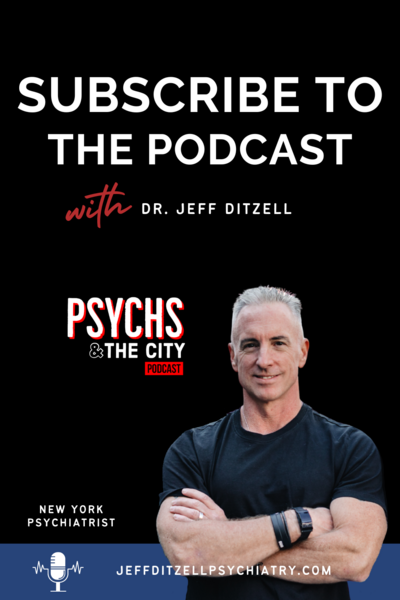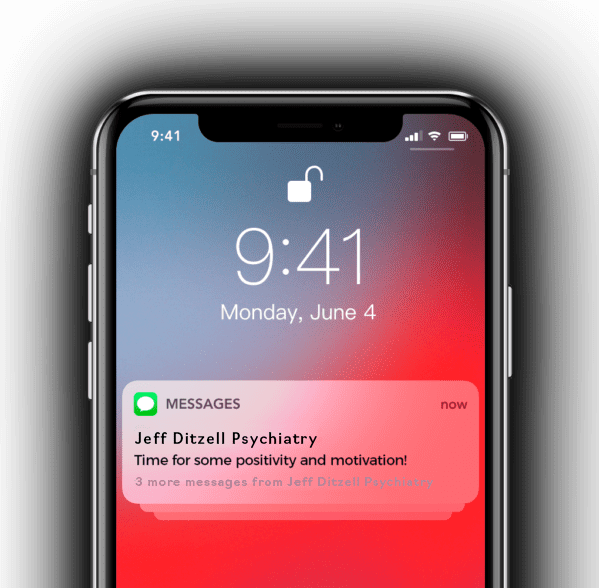Home / Mental Health Journal / Stop the Madness; Superspread Happiness by Dr. Adrian Gaty

Are you panicked yet? Looks like COVID is roaring back in the headlines, cases are going up, holiday plans are being cancelled. I thought it would be the perfect time for an optimistic update.
Unfortunately, as your friendly neighborhood pediatrician, I don’t have good news to share. I have to be honest with you: things look bad.
I’m not talking about COVID. I’m talking about mental health. I have never seen anywhere close to this many patients with mental health crises in my career. Our kids have never been this unhappy, and many are in serious, life-threatening psychological danger. This isn’t some random blip. Our kids aren’t just waking up one morning with debilitating anxiety and depression ‘” we are the ones giving it to them with this COVID lockdown madness.
I have written before about the need to let our children keep living their normal lives, and have given some tips about outdoor time, sports leagues, and so on. Things are so much more serious now, so my recommendations are more extreme and more urgent than ever. Before we get to them, a few reminders:
– COVID is not dangerous to children. As in, statistically zero danger. To clarify, that doesn’t mean they’re not in danger of getting COVID, it means that, if they get COVID, it’s not dangerous to them. Most kids with COVID won’t even have cold symptoms. A minority of kids will have’¦ a cold. An even smaller minority might have’¦ a bad, flu-like cold. That’s it. That’s the extent of the danger.
– Suicide, unlike a mild cold, is very dangerous to children. In this country, after accidents, suicide is the leading cause of death among teenagers. Combine that with my first reminder above, and that means, if you have a teen, your child is far, far more likely to die from suicide than from COVID. It’s not even close.
– Insofar as COVID is dangerous to people, it is dangerous to the very old, and the very unhealthy. In particular, COVID appears more dangerous to people who are overweight, or in generally poor cardiovascular health (ie in poor shape). I still do not think COVID should affect any child too badly, but if in some fluke it ever would, that child would have to be pretty out of shape, pretty overweight. I bring this up only because it is also worth reminding you that you need to exercise regularly to stay in shape. Staying indoors, cancelling soccer games, spending time on the computer, not biking with friends ‘” in short, not regularly getting a chance to go out, play, and work up a sweat ‘” is a surefire way to take a healthy kid and turn her into an overweight, out of shape one. In other words, not letting your child play outside will make them more vulnerable to dying from COVID, not less.
– Solitary confinement is a punishment, not a cure. Remember those solitary confinement prison movies, like Papillon, or The Shawshank Redemption, or The Bridge on the River Kwai? When those prisoners were sent into the ‘˜hole,’ deprived of all social interaction ‘” that wasn’t meant to protect them, that was to punish them. Apologies for the snark, but I just want to be clear here: we are all made to be social. We are made with faces that smile and arms that hug. It is not healthy for any of us to be deprived of genuine social interaction. And by not healthy, for children, I mean it leads to lifelong developmental and psychological damage. We don’t do these experiments on real children, because it would be too cruel, but young lab animals, like monkeys, who have every other basic need provided for plentifully but aren’t allowed to socialize normally with their peers turn out irreparably damaged. Keeping smiling, hugging people away from your child is far more likely to scar her for life than to protect her health.
– Depression and anxiety can be induced. What I mean is, some percentage of people will always struggle with some extent of mental illness. But if you take the most mentally healthy person in the world and inflict the trials of Job upon him, he just might crack under the pressure. Take a perfectly happy, healthy teen, who is enjoying school, having fun at sports, and hanging out with her friends on the weekends. Take her out of school, take her out of sports, and forbid her from hanging with her friends ‘” what back in my day we called ‘œbeing grounded’ and was reserved only for serious misbehavior, not used as a protective health measure ‘” and chances are she will soon end up deeply miserable. To be clear, she did not just all of a sudden ‘˜get depressed,’ it’s not some normal manifestation of teenage moodiness. If you take away a person’s interests, activities, and social interaction, you are driving her crazy. She won’t be the same happy, healthy girl, because the happiness and the health were inextricably linked to the interests, activities, and friends. No amount of antidepressants or therapy can substitute for having your life taken away.
– ADHD can also be induced. What I mean is, if someone is a good student in a classroom, sitting quietly at his desk, listening to the teacher, and then all of a sudden that same student has a hard time focusing when expected to learn at home, in his bedroom, with his cat and dog coming in and out, his sister running around, his guitar next to the bed, and his playstation down the hall, he may not actually have suddenly sprouted a learning disorder. Everyone has a harder time focusing when in a distracting environment. That is why, for example, librarians like to keep things quiet ‘” students go to libraries to have somewhere quiet and distraction-free to study for finals, not to have a recreation of their home environment.
– One final reminder. This one will be controversial, but I am trying to be honest. I am a pediatrician, I don’t deal with adults. My personal opinion is that more vulnerable, immune-compromised, older adults should make their own decisions about the risk/reward situation when it comes to spending time with their loved ones. As any one who has ever had to see a parent or grandparent struggle after losing a spouse can tell you, loneliness takes a severe toll on the elderly as well as the young. We have several elderly members of our family in varying stages of failing health. Some of them are happy to keep up with our little ones via video alone, while others are dedicated to living out their lives as normally as possible, because they don’t see the point of a few extra months if they are spent miserable and alone. I am not advocating for one or the other position, I am not in their shoes. All I am here to talk about is the mental health risk posed to our kids. And so I must share that I have lost older family members, as we all have, and it is a tragic, yet also a natural, unavoidable part of life; however, as part of my profession, I have had to see parents lose their children, and that is more than tragic, it is unnatural and incomprehensible. I hope none of us ever have to experience what they experience, all I can tell you is that, as a parent, you never, ever, ever recover from burying your child. You mourn the deaths of grandparents and eventually life moves on as it must, but if you lose a child, life stops, and you will never be the same. Again, I am not advocating for killing grandma, I am just trying to be fully honest and communicate the reality of the risks involved for our patient families. We are called to make sacrifices for our children; we are not called to sacrifice our children for ourselves.
With these admittedly harsh reminders out of the way, and with the frightening number of academically and developmentally halted toddlers and young children, and depressed, anxious, and suicidal teenagers that I have been overwhelmed with the past several weeks, here are my recommendations on how to stop the madness, superspread happiness, and save your children:
1. Get your kids back to school in person. I have heard from some parents that their school districts are asking families to let them know in the next few weeks what their learning plans will be for the new year. Please send your kids back to in person school. Real in person school, not the simulacrum some schools have of every kid sitting at their desk but watching a virtual lecture on the computer. If your school is not offering real, in person school, take your child out of that school. Do whatever you have to do ‘” private school, charter school, homeschool coop with other families ‘” but if you want to save your child’s development and mental health, your New Year’s Resolution must be to get that child learning alongside other kids in real life by January. I am telling you as a pediatric medical professional that if they continue to do virtual learning they will a) learn hardly anything and b) face severe and potentially life-altering mental health challenges. Do not simply go along with the school district decision, that is not your job as a parent; your job is to save your child’s life. Do whatever it takes to do so.
2. Get your kids back out there. Turn off the TV, take away the smartphones, make them hang out in person with their friends. If they’re littles, arrange playdates. Make them spend as much time outside as possible, preferably playing with others. Sign them up for whatever in person, socializing activities you can find ‘” sports teams, church groups, chess club, whatever. Get them out of isolation.
3. Do not pressure your kids about their grades. This is not the semester to worry about report cards. Their lives have been upended. If their teachers give you trouble about them not paying attention during virtual class in their bedroom, politely tell the teachers that you are sure your kids will return to their customary level of attentiveness once school returns to its customary level of instruction, but until then the teachers ought to give them a break. If any teacher expects me to put a child who has no ADHD history on Ritalin because he has a hard time focusing on bedroom laptop school, that teacher is going to have to find another doctor’s leg to pull.
4. Celebrate! That’s it, that’s the recommendation. Don’t do somber, mini, socially distanced birthday, Thanksgiving, Christmas, Rosh Hashanah, or New Year’s parties for your kids. Try as best as you can, and as much as the elderly are willing, to celebrate as normally as possible. If grandpa won’t come if you’re gonna have normal Thanksgiving, then celebrate Thanksgiving with grandpa outside and socially distanced the next day, but don’t rob the celebration from your children. Don’t let your toddlers get used to not seeing people’s smiles, don’t let your teens get used to another lonely night in their room. There is not a single people in the history of the world that has ever thrived without feast days, days of thanksgiving and cheer and singing and worship and family celebration, not one ‘” and your children won’t be the first.
Apologies for the length of this post, but we are facing an unprecedented developmental, academic, and mental health crisis among our children ‘” one that far dwarfs any harm posed to them by a cold ‘” and we all need to do our part to speak up and speak out on behalf of our kids. Thank you for reading, and, from the bottom of my heart, I wish you and yours a truly Happy Thanksgiving!
This was originally posted by Dr. Adrian Gaty on Medium 11/24

Dr. Jeff Ditzell, D.O. is the lead psychiatrist at Dr. Ditzell Psychiatry with over 25 years experience treating people for Anxiety, Depression, OCD, PTSD, Adult ADHD, Bipolar Disorder, using ketamine treatments, psychotherapy, and so much more.






